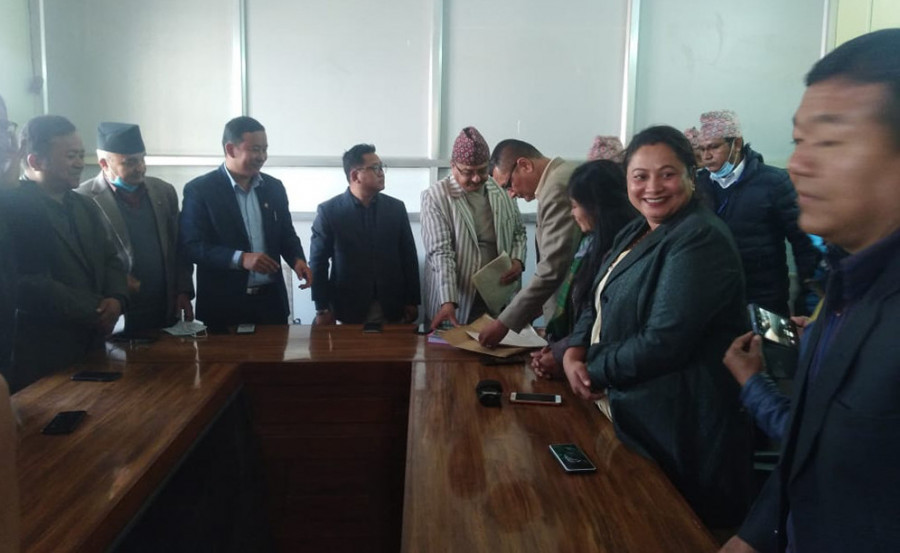Editorial
Provincialising political instability
Balloting alone can be inadequate to gauge the aspirations of the people.
If the post-federalism slogan 'Gaun-gaun ma Singha Durbar' has not yet materialised in the administrative domain, the division in the ruling Nepal Communist Party has most certainly seeped all the way to the local levels across the country. In response to Prime Minister KP Sharma Oli's Lower House dissolution on December 20, the Pushpa Kamal Dahal-Madhav Kumar Nepal faction of the party filed no-confidence motions against Bagmati Province Chief Minister Dormani Poudel and Province 1 Chief Minister Sherdhan Rai on December 25 and 27 respectively.
Since then, the KP Oli faction, to which the chief minister duo belong, has used every tactic in the book to halt discussions and voting on the no-confidence motions, wary of the imminent danger of being voted out. The prime minister himself has hinted time and again, in his non-stop political rallies, that he would neither honour a court verdict invalidating his action nor tolerate any attempts by his intra-party rivals to destabilise his hold in the provincial governments. The unceremonious ouster of the Province 2 chief last week is a dress rehearsal of what Oli aims to do if he continues to be cornered.
The provincialisation of the Nepal Communist Party's internal feud has laid bare the continuing tradition of democratic politics as an arithmetic game rather than a means to building a just society. Democracy loses its essence when the democratic process gets reduced to the calculation of who holds numerical strength rather than strengthening political culture. Indian philosopher and economist Amartya Sen has distinguished between democracy as public balloting and democracy as public reasoning. For Sen, the central issues in a broader understanding of democracy are political participation, dialogue and public reasoning, leading to the realisation of the idea of justice.
In The Idea of Justice, Sen elucidates that the effectiveness of balloting depends on the conditions of free speech, access to information and freedom of dissent. Balloting alone, as Sen rightly points out, can be inadequate to gauge the aspirations of the people as well as the strength of democracy as even dictators can exhibit a façade of democracy and achieve victories by suppressing public discussion, curtailing the free flow of information, and generating a climate of fear. The main concern for democracy, thus, according to Sen, is justice. And justice comes not through balloting but through public reasoning.
A classic case is the trial of the Greek philosopher Socrates, the first major public intellectual who was accused of corrupting the youth of Athens. He was declared guilty by a simple majority out of 500 jurors and subsequently executed. That the first democratic city in the world would execute its most conscientious citizen through balloting exposed the fallibility of democracy as a system of numbers.
To stop democracy from being the authoritarianism of the numerical majority, Socrates favoured the idea of letting only the reasonable citizens among the public to vote. In today's age, such an idea is as regressive as it could get. Nevertheless, what is important is that we create conditions where democracy serves a system of public reasoning towards justice as a goal rather than balloting towards the fulfilment of selfish goals of a few elected leaders. It comes through the fostering of the ideals of reasoning, justice and ethics as part of our political culture.




 27.41°C Kathmandu
27.41°C Kathmandu














